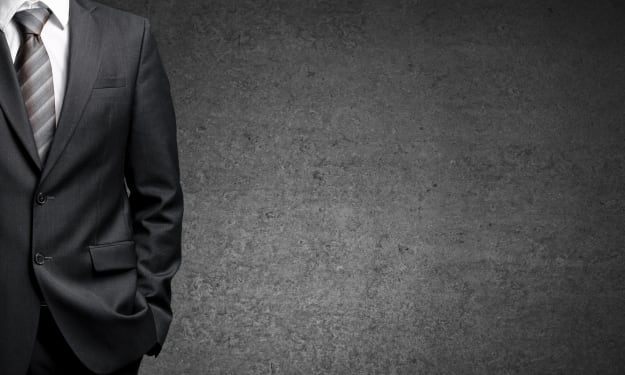Man Talk: Part 1
Two filmmakers struggle with their masculinity, friendship, and ethnic identity.

David had always had an oil-and-water rapport with sleep, and it didn’t help that, despite being on the fifth floor of his respective tower of the Fontainebleau Hotel, he could hear cocaine heartbeats of techno all the way from the pool area outside his window. It was only eleven in the morning, but there seemed to be no wrong time for stereos to blast in this thin slice of Miami Beach. David found himself wondering how the place would be if the constant stream of music were to suddenly stop; surely, the air would become stoic and thirsty - sort of like how it was in his old neighborhood in one of the more forgotten parts of Santa Ana, where he spent his first eighteen years before moving to Los Angeles as people with delusions of making it in the film industry are wont to do. But he didn’t think about it any further; thinking about death and decay - or worse, feeling it - can take someone for the type of ride that he tried to avoid going on, even by himself. When David could feel himself drifting back into slumber, his phone screen lit up. It was Paul, his artistic partner-in-crime, already wanting to know tonight’s plans.
“Celebratory dinner after awards?” read the message. “That is, if we have something to celebrate.” He ended the sentence with a winking emoji, though David knew that he really felt he would be flying back to California with a trophy in his luggage.
“Yeah.” David texted half-heartedly, and put his phone away. Both men had been brought to the Miami International Film Festival by their most recent project “After School” - an hour-long mockumentary about a thirty-something journalist who goes undercover as a professor at his alma mater to reconnect with an old flame who teaches there. Usually, they directed their movies together, but this film had been Paul’s brainchild. David had hated the premise from the minute Paul first pitched it, so in an effort to quarantine himself from the creative side of “After School”, he chose to stick to the technical, and appointed himself the editor.
“It’ll be great.” Paul had insisted.
“No, it won’t”. David had said, rather tersely.
“My Screenwriting II professor always said that a good filmmaker keeps the eyes full and the wallets empty.” Paul answered, which irritated David even more. Paul’s idea would have been acceptable when they were actually in film school, back when their shared portfolio was a cringefest full of cheesy attempts at rom-coms, love letters to Tarantino featuring dollar-store blood, and shorts featuring girls holding a red rose for five straight minutes. After graduating, though, they felt free enough to take their craft to another level. Let’s pull a Cassavetes on the crowd, they’d decided. Make them work for their reward. Hide the big feelings in plastic eggs and scatter them everywhere. Give them a Rubik’s cube, something they’ll need Tums to help them digest. And they did; maybe nothing they made could have ever compared to what the greats did, but they made so many real gems that actually fed the brain while also keeping it begging for more. So what if their work had gone straight to VOD and barely anyone watched it? At least they hadn’t fallen into the mushy-gushy, teary-eyed rabbit hole of commercial cinema, which is what David feared they were starting to do now.
“Imagine ‘Never Been Kissed’: the college edition.” Paul moved his hands, as if seeing his cinematic vision play out in front of him. “Think ‘Gary Marshall does a documentary’.”
“So you’re rewriting ‘Never Been Kissed’?”
“Not rewriting. I’m paying homage.”
“Of all films, why pay homage to that one?”
“Why not? It’s a classic.”
“I’ve never met a guy who thinks that.” Now, David’s annoyance turned to disgust.
“Now you have.” Paul said flippantly. Once he and David had hit their late twenties, Paul morphed into someone David didn’t recognize. The new Paul was drifting into all that was sentimental and safe, and now felt that the proud, gritty armor he had worn growing up in Santa Ana no longer fit. He and Paul had grown up in “The Circle”, which was the name David used to refer to their community, a network of neighborhoods around greater Los Angeles populated by good grandchildren of the Caucasus. Amongst their people, there seemed to be a totem pole of sorts; at the top were the elders who donated their time to church bazaars and relief missions, and the youngsters who were immersed in anything and everything related to the motherland. Then there were the casual Fridays, the ones who only showed their faces at social gatherings once in a while but were still considered significant enough to have their well-being inquired about at parties and over the phone. Then there were the leftovers, the scraps, the ones who could evaporate without anyone noticing. That’s where David and Paul fit in; from the time they were children, some kind of caution tape hung around them, but Paul was relatively the more well-liked of the two. That didn’t surprise David; whenever there was light, Paul was a moth and he was a vampire. When they got caught zoning out in school, David would blank and say the wrong thing, and Paul would derail the lesson with a joke or funny story told with Shakespearean flair. At community functions, David could be found in the corner reading and Paul could be found all over the room interrupting conversations. They were lambs on the football field, but lions in the school theater, with David helping paint the sets and Paul on stage - or “playing dress-up” as his parents called it. Their mothers and fathers worried for them often, and for good reason; in their hot old-country wilderness, full of gnarly brambles and ancient poison, a lamb stood no chance.
Now, David stood outside on his balcony, the morning humidity hugging him as he looked out at the ocean, and then the pool area - where, he had learned years ago, parts of “Goldfinger” had been filmed. Being at this hotel would have made teenage David weep with joy; back then, he could recite most of the movie verbatim, and so could Paul, the only other person he knew under the age of seventy who shared his love for James Bond. The boys would sometimes act out scenes from the film when they hung out, and seeing the hordes of beach chairs outside reminded David of when they used to role-play the scene in which Bond, face down in one such chair, receives a massage from his blonde bombshell-du-jour until gets interrupted by a fellow secret agent friend.
“Uh, man talk”. They would take turns imitating Sean Connery’s Scottish brogue and the way he slapped the woman on the behind to shoo her away. After being far too entertained by that, they would move on to their next favorite scene to re-enact.
“Do you expect me to talk?” Paul would lie across whatever was available at that given moment- Paul’s bed, David’s couch, benches in the park - pretending to be Bond lying on a table as a laser threatened to burn him into forever.
“No, Mr. Hagopian, I expect you to die!” David would bellow in Goldfinger’s accent. It was bad enough that they were this embarrassing in private, but they also took this routine to school, expecting their fellow students to laugh (which they did, but not in the way the boys had hoped).
Remembering that era that made David wince now, but oh, did he wish he had his old camcorder to capture the breathing postcard in front of him, and all the nocturnal beauty he had seen yesterday after dinner on Ocean Drive; the neon belt of hotel signs against the darkness, the whinny of the accordion and groan of the sax from street musicians, tipsy tourists and locals filling the sky with broken Spanish and goofy contentment. As a teenager, David was never far from that camcorder. By the time he had gotten the hang of using the camera, it basically became one of his appendages - and, as a funny-looking appendage would, it painted him a shocking color from everyone else. After school let out, he would take to some of the sadder sections of West McFadden Ave, searching for scraps of inspiration. One day, he stood behind a laundromat, filming an old man making and selling balloon animals across the street. He zoomed in and out, focusing his lens on his wrinkled fingers twisting plastic dogs and hats and swords into existence, taking close-ups of children watching him intently…..
(To be continued)
About the Creator
Sharisse Zeroonian
Writer/Filmmaker/TV Producer/Long-Suffering Teacher/Potential Grad Student
"but all my words come back to me, in shades of mediocrity"





Comments
There are no comments for this story
Be the first to respond and start the conversation.